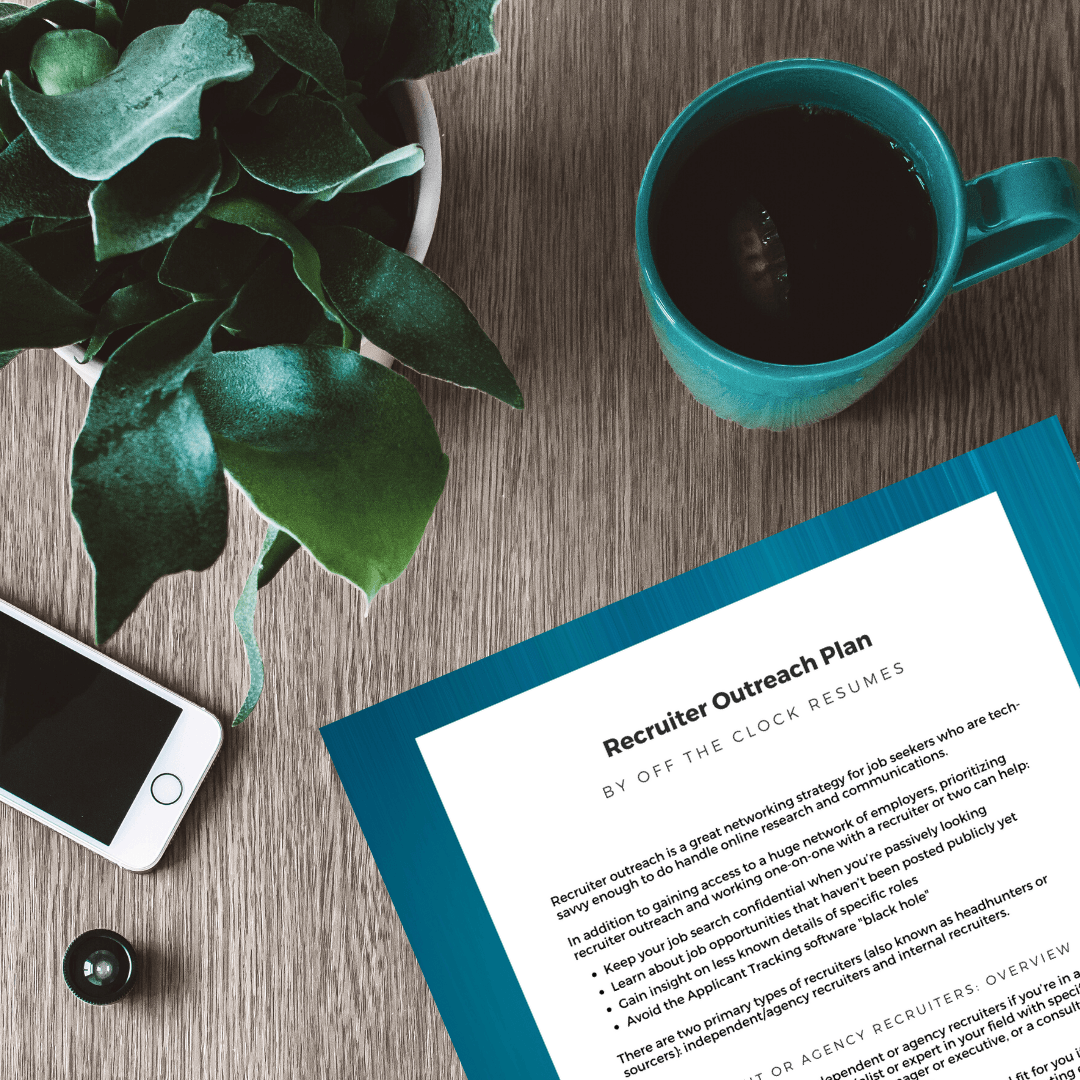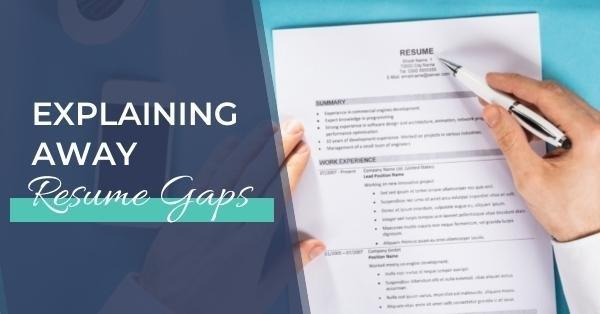
Explaining Away Resume Gaps
Finding a good job continues to be competitive in many industries. But to find a better job, you’ll need an updated resume. You probably won’t get an interview without one.
If you have a resume gap, a stretch of time where you were unemployed, that will probably come up during the interview. But it doesn’t necessarily mean that you won’t be considered. There are several tips that can help you explain your resume gaps and continue to have a good chance at getting the job you want.

This blog contains affiliate links, meaning I may receive a small commission (at no cost to you) if you subscribe or buy something through the links I share. I only share links to products or services that I use myself or absolutely love!
Reasons For Resume Gaps
A resume gap is typically defined as any period of time that took place between two jobs. This could be classified as both current and past periods of unemployment. Some of the most common reasons for resume gaps are as follows:
Focus On Health
One of the reasons that you may have had a resume gap is if you were focusing on your health. While working is important, it can preclude us from taking care of our physical and mental health. If you are dealing with a serious illness, have had mental health challenges, or are getting addiction treatment, taking time off away from work could be necessary. Your interviewer should understand that.
Pursuing Passions Or Education
You might also have a resume gap if you took time off to pursue your passions or education. While work is important and will help you build a career, there are times when you might need to take a break from working to prepare for the next step in your life. This can include pursuing a higher degree, traveling the world, starting a business, raising a family, or finding other ways to find fulfillment.
Laid Off From Prior Employer
While some resume gaps may be voluntary, others may be involuntary. If you’ve lost a job, it likely will take some time for you to get a new one which can then create a resume gap. Losing a job isn’t always your fault. Companies downsize, positions are eliminated, and budgets are cut. Good recruiters know this and won’t hold it against you.
How To Explain Resume Gaps
Resume gaps are pretty common. What matters is how you explain them during your interview. Here are some routes you might consider.
Be Honest And Forthright
The most important thing is to be honest. In a time when everything can be searched on Google, the truth is bound to come out. And though a recruiter might not care that you got laid off from your last job, if you tell them you quit to go back to school and they find out you were lying, you’re going to be cut from consideration completely. If they can’t trust you to be honest about your resume, they won’t want to trust you with the responsibilities of the job you’re applying for.
So when the question comes up, address it directly. Lying will only make it worse for you.
Put A Positive Spin On It
Another way that you can explain a resume gap is by putting a positive spin on your situation. A resume gap can actually be a very productive time in your life and even make you a better employee. You should be prepared to discuss what you accomplished during your time away from work and how it could make you a better asset for the company going forward.
For example, if you took a year off to travel. Highlighting the fact that you picked up some Japanese during your time there might make you a great fit for a company that works closely with businesses in Japan.
Show That You Stayed Current
When they look at a resume with gaps, employers might be worried that you’re out of the loop. You may have missed the latest technologies or trends in your field. But you can prove them wrong. Let them know what you’ve done to stay current. Tell them about the industry newsletters you’ve been reading and drop some information about them into the conversation if you can. You’ll show that you’re passionate and informed about your industry and they won’t have to waste time or money catching you up.
When applying for jobs today, providing a resume that is filled with experiences and successes is always important. But most people will have at least a brief gap in their resumes. Being able to explain the gap will let potential employers know you’re capable of doing the job.
Related Articles
-
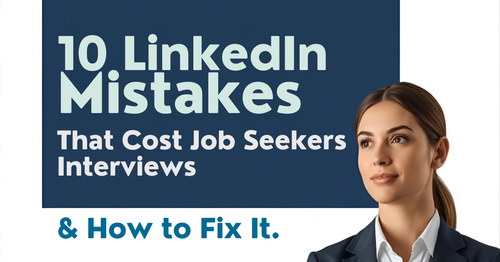
10 LinkedIn Mistakes That Cost Job Seekers Interviews (How to Fix It)
Guest blogger outlines how to avoid these LinkedIn mistakes to drastically improve your chances of being noticed, whether you’re actively job hunting or just trying to grow your professional presence.
-

Guide To Choosing A Career In SaaS
Thinking about a career in SaaS? Guest blogger Jacob Wickett shares top roles, key skills, and how to break into this fast-growing industry.
-
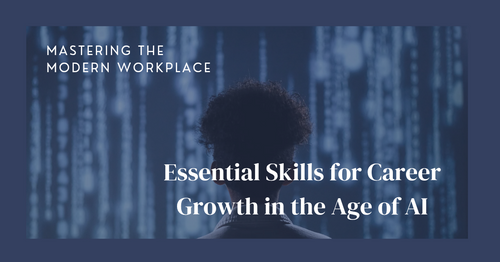
Mastering the Modern Workplace: Essential Skills for Career Growth in the Age of AI
Guest blogger Sadie Smith shares a comprehensive guide to help professionals navigate unprecedented changes driven by technological advancement with confidence.
-

Navigating Your Career Path with a Family Nurse Practitioner Degree Program
Guest blogger Sadie Smith reveals how strategic planning in your healthcare career broadens your impact on patient care and community health.
-

Career Transitions: Navigating Your Path to Success in Healthcare and Beyond
Guest blogger Sadie Smith shares how to leverage your existing skills and experience while pursuing new career opportunities in healthcare and other industries.
-

Breaking Barriers: A Guide to Empowering Women in Manufacturing Leadership
Guest contributor Sadie Smith shares this comprehensive guide on how women can reshape the manufacturing industry landscape with actionable insights.
-

Navigating An Evolving Job Market With Strategies For Success
To thrive in a dynamic job market, you need to continuously adapt your job search strategies. Stay informed and flexible to position yourself for success.
-

4 Personal Assistant Interview Questions and Answers
Guest blogger Liza Griffen, co-founder of Tyler Griffen, equips you with a deep understanding of typical interview questions and practical answers to help you showcase your skills effectively whether you're aiming to impress in your first personal assistant role or looking to step up in your career.
-

Crack Your Dream Company Interview
Guest contributor Nandkishore Rathi shares practical tips, strategies, and insightful advice from career experts to help you shine during written and verbal interviews.
-
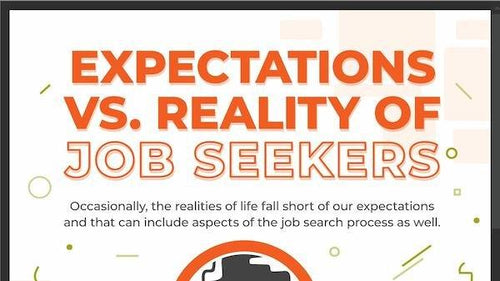
Exploring The Realities Of Job Hunting (Infographic)
Guest contributor Joseph Matalone delves into common expectations in job seeking and the contrasting realities.
-

Don't Panic: 15 Ways To Prepare For A Video Interview
Guest blogger Daniel Boyce with Aware Recruiter delves into 15 actionable steps to prepare you for a stellar video interview experience whether you're a seasoned professional or just stepping into the job market.
-

5 Signs That A Company Values Employee Wellness And Safety
Guest blogger Sharon Feldman shares how asking questions about wellness and safety in your interview could give you insight into a company’s values.
-

Can An Employer Fire You For Being Sick?
Many employers can terminate an employee for falling sick frequently. Guest blogger Natalie Padilla shares all you need to know regarding being fired by an employer.
-

Tips On Building A Positive And Supportive Workplace
Guest blogger Adam Blacksmith shares how to embrace communication, celebrate diversity, and empower your team for success by fostering a positive and supportive workplace culture.
-

AI: Transforming Networking, Interviews, and Careers
Guest Author, Dean Fankhauiser. discusses how AI is revolutionizing networking, interviewing, career planning, and professional advancement.
-

Preparing for Different Interview Formats: Phone, Video, and In-Person
Interview Coach Ellie Hoekman shares specific preparation steps for phone, video, and in-person interviews.
-

Negotiating A Competitive Salary
Guest blogger Rohan Singh shares strategies for negotiating a fair salary that reflects your worth and fulfills your goals.
-

Can My Employer Ask Why I’m Taking A Sick Day?
Guest blogger Samantha Larson shares whether your employer has the right to ask you why you are sick and how much information they are entitled to when you take a sick day at work.
-

The Benefits of Coaching in the Workplace
Guest blogger, William Powell, shares some of the concrete examples of the benefits associated with employee coaching.
-

10 Facts & Stats About Sexual Harassment in the Workplace
Guest blogger Sharon Feldman shares how many people experience harassment every day, including at their place of work, to increase awareness.
-

The Ultimate Temping Guide for Beginners
Guest blogger Auria Heanley with Oriel Partners shares insight into what a temp job is and what to expect in order to make the most of a new job opportunity.
-

High Paying Career Paths After Learning Python
Guest blogger Rose Young with Codebasics.io shares some of the promising career paths you can explore after learning Python programming.
-

How To Ace Your Interview With A Staffing Agency
Guest blogger William Powell shares how to prepare adequately for an interview with a recruiting agency to increase your chances of landing your dream job.
-

How Do You Know When It's Time To Quit Your Job?
Guest blogger Katie Meyers shares when quitting your job is the right thing and how to go about it.
-

5 Things You Need To Know About Job Interviews To Succeed
Guest blogger Marcus Ralph shares 5 tips on what you can do before a job interview to be best prepared to make a solid first impression and land the job.
-

Know Your Worth and Add Tax: How To Effectively Negotiate Your Salary
Guest blogger Jeffrey Cassells with Shegerian Law advises that it's time to learn how to negotiate strategically and not settle for being underpaid, whether you're at your first or fifth job.
